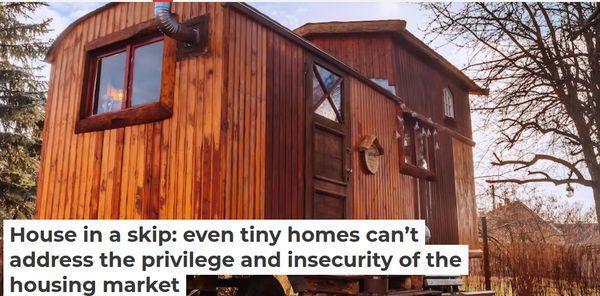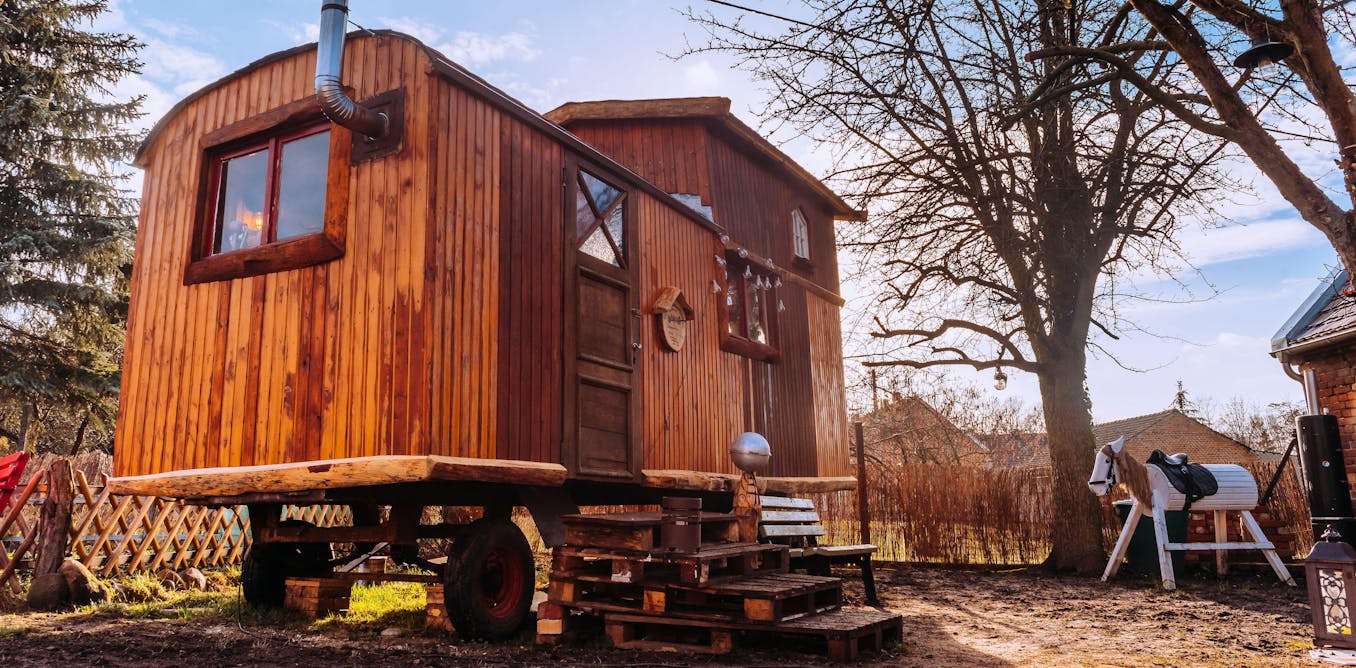
House in a skip: even tiny homes can’t address the privilege and insecurity of the housing market
Marshall has explained that converting a skip was the only way he could afford to live in London. Skip House reportedly cost £4,000 to build, and he pays £50 per month to an arts charity in rental fees for the land.
He has a portaloo onsite, but no running water, so showers at the gym or at work. This is not many people’s idea of luxury, but it is a creative solution.
Many see the idea of a tiny house as a counter-cultural statement against consumerism and the housing market – and the culture of overwork required to finance these two things. Tiny houses can act as a beacon highlighting a simpler, more sustainable way of life.
Marshall’s ability to find and come to an agreement with the arts charity that owns the land he is renting is made possible, in part, by what sociologists term his “social and cultural capital”, as a white, educated, man.
The tiny house movement embodies a complex mixture of counter-cultural ideals, economic pragmatism and the entrenched sheltering of privilege. They are not a fix-all, but neither should they be dismissed out of hand.
#TinyHomes #housing #social #culture #consumerism #CapitalismFails #CounterCultural #coop
